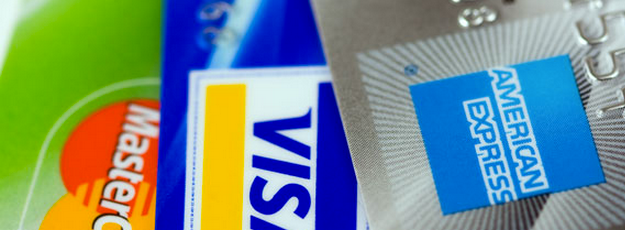You may also be interested in this article: E-commerce sales to hit $1 trillion in 3Q22: This is why you need to beef up your e-commerce website by (2023)
In the process of setting up any business online, you are going to need to make money somehow.
And the only true way to do this is with a payment gateway.
A payment gateway is a service, pre-configured to accept all forms of major credit cards, that makes the process of selling product to end-users much easier.
Any business, whether it be a small outfit selling on Amazon or the Amazon company themselves, must use a payment gateway to make financial transactions happen.
The talk of choosing which gateway to use is something that we will discuss in another piece, because there is more to think about here before jumping right into the thick of it.
Merchant Accounts and Payment Gateways
What you are basically doing when you go to companies like PayPal, Amazon FPS, and Google Checkout is putting that sign on your virtual door that says, “Come in. I accept Visa, Mastercard, American Express, and more.”
The Internet is a beautiful thing.
Unlike a brick and mortar seller, who has to create a Merchant Account with each individual credit card company before he/she can accept that form of payment, the payment gateway allows the user to create a merchant account with the payment gateway, which takes care of everything else.
The official term for the payment gateway in this sense is an aggregator, because it AGGREGATES all of the major credit cards and online billing services into one convenient package.

There are two different routes that a gateway can take.
One route is that of a digital merchant account. You simply implement the feature into your website (more on that further down) and people can begin charging their cards for your product or service.
The other route is a community account. This is only typically seen from the heavy hitters, who can afford to do things this way and who have built the customer base and rapport to pull this off effectively.
Examples of a community account process in action are PayPal, Amazon Payments, and Google Checkout, and they require both the buyer and seller to have an established account with the service. These are the easier options for most customers, since they can “one-click shop”, buying a product just by being signed into the established account with an already active card attached.
Fees and Percentages
It’s understandable from the information given that these companies are providing a lot of leg work for the personal seller or small business owner.
Justly, these companies do take a percentage and flat fee from every transaction processed.
This is done for two reasons.
The first is that the service provided is legitimate and involves a great understanding of how each credit card company works. Policies for American Express differ from Mastercard, which differ from Visa.

The second reason to charge is because credit card companies charge percentages for use. Regardless of you or PayPal finalizing the financial transaction, Visa takes a percentage of anywhere from 1.5-2.0% from every online sale using one of their credit cards. This obviously impacts the seller and not the buyer.
The average charge on a merchant account by a payment gateway is about 2.9% of the transaction plus an additional $.30 off the transaction. In my research, almost all of these companies charge this rate. If and when that changes I will let you know.
Basically, when you sell something for ten bucks, YOU see $9.41 in your account.
These companies also may do discount rates, though those are usually reserved for people selling mucho product (at least $1 million of product sold per year from my research), so if you are a small business, these discount rates may not apply.
Autobilling for Recurring Transactions
Another aspect of payment gateway selection is auto billing.
What if your product isn’t a physical unit.
What if I wanted to, for example, charge for what you are reading right now?
The recurring transaction allows me to bill how I see fit. Perhaps I bill $9.95 a month to your credit card, or charge you $49.99 a year for access to all of my articles.
This is an extra portion of code that needs to be written into a website to operate, but can be done with most of the popular online payment gateways.
We have plenty of experience with that, so let us know in the comments below if you are unsure about recurring billing.
Integration
So now you have a crash course in eCommerce and payment gateways.
But how does this stuff actually get implemented?
In the cases of the account based payment gateways like PayPal, there are many options available. You can set a link to buy your product on your web page in the code or via a plugin on a WordPress-powered website, which is even simpler.

Additionally, other plugins for websites will have built in support for all sorts of different payment gateways.
WooCommerce and WP e-Commerce are two of the most popular plugins available.
Alternatively, you could talk to someone about developing a plugin for your website or hosting the website and helping with implementation if you have never explored financial online services. This is especially true of sites with the aforementioned auto billing, as that cannot be taken lightly and has many interesting twists.
So Which Online Gateway Should you Choose?
Next week, we will post a guide of the different payment gateways and compare PayPal, Amazon FPS, 2Checkout, and more.
If you have any questions or want to recommend a specific payment gateway for discussion next week, let us know in the comments below.
To be notified of the article on gateways next week, kindly subscribe below.

